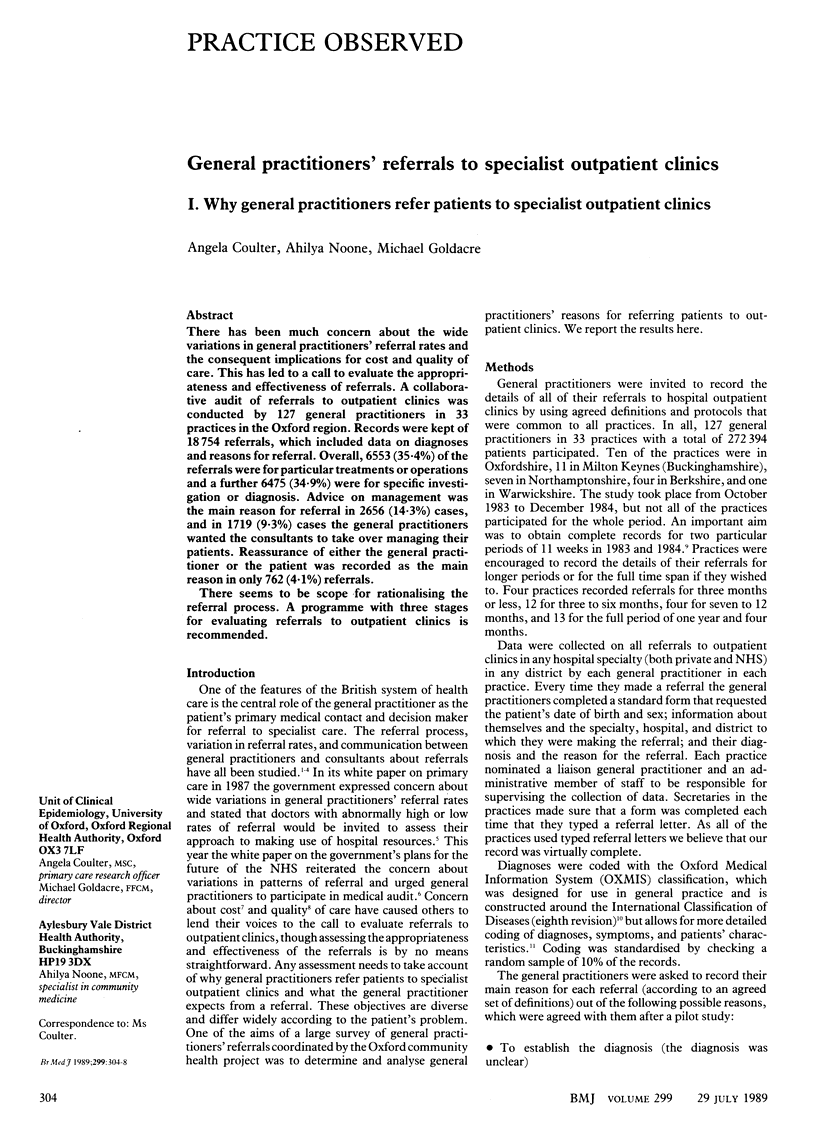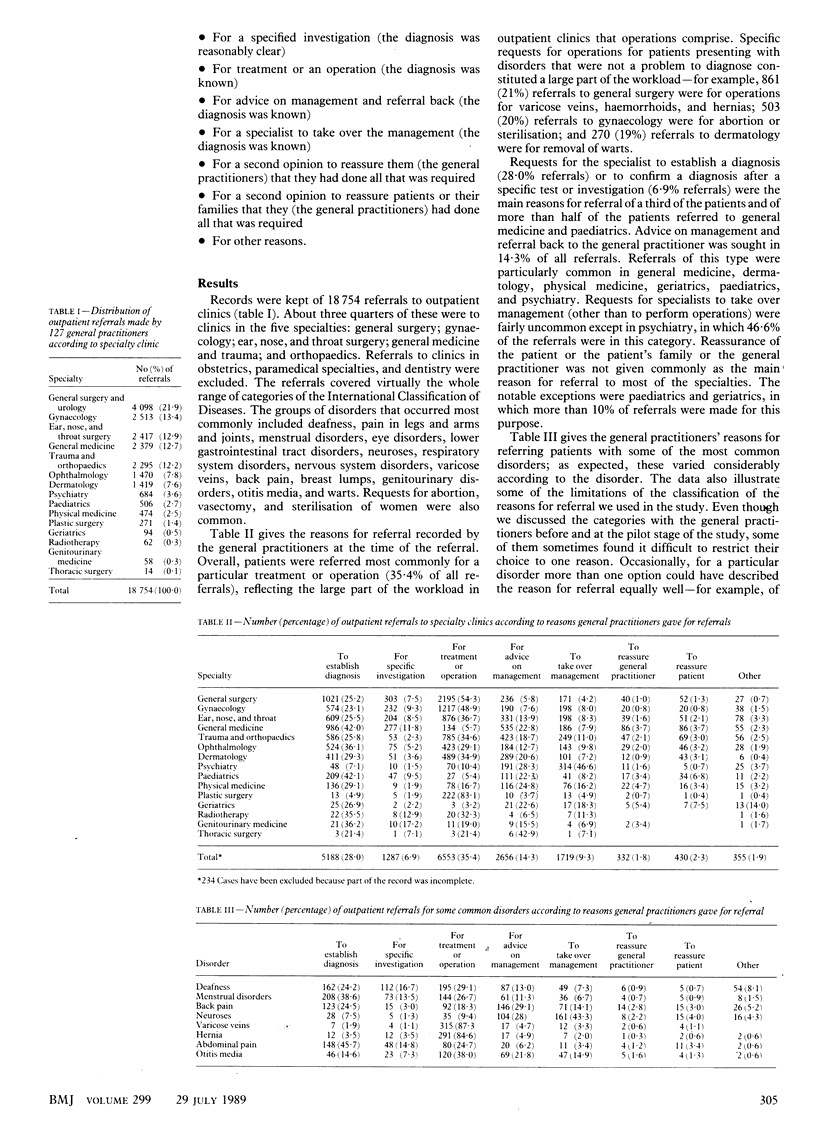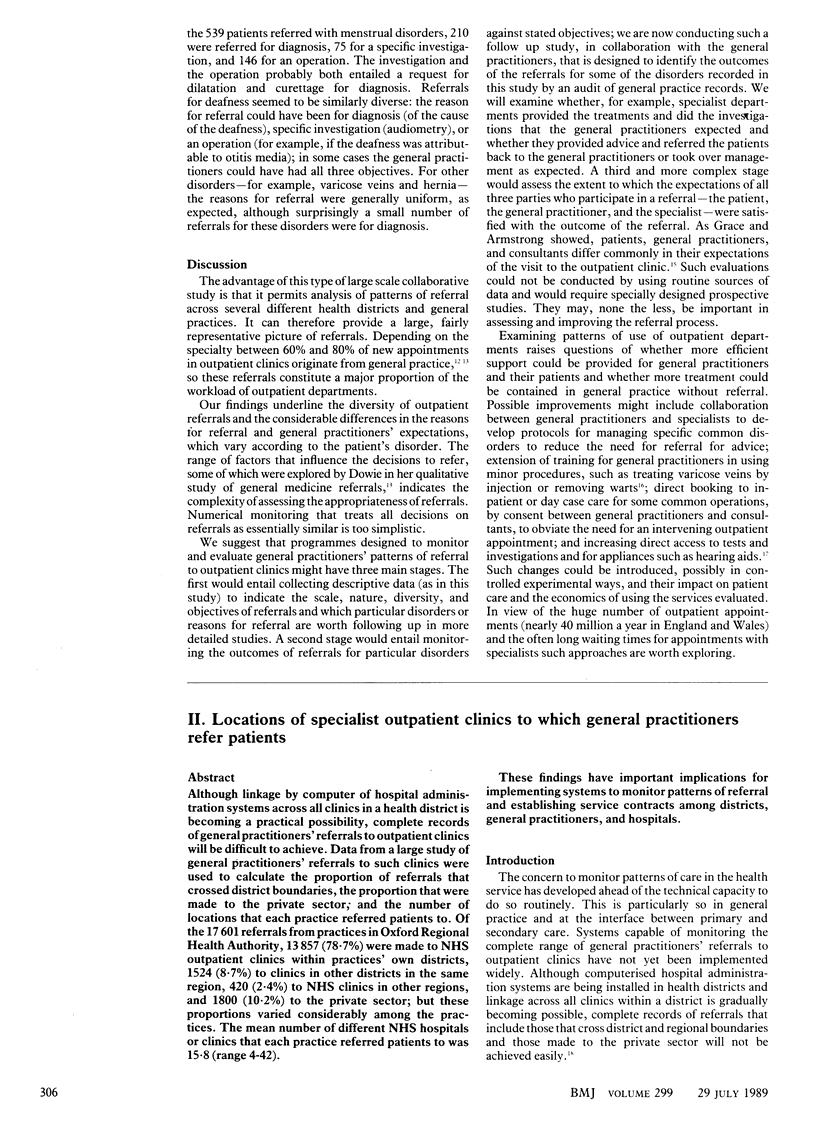Abstract
There has been much concern about the wide variations in general practitioners' referral rates and the consequent implications for cost and quality of care. This has led to a call to evaluate the appropriateness and effectiveness of referrals. A collaborative audit of referrals to outpatient clinics was conducted by 127 general practitioners in 33 practices in the Oxford region. Records were kept of 18,754 referrals, which included data on diagnoses and reasons for referral. Overall, 6553 (35.4%) of the referrals were for particular treatments or operations and a further 6475 (34.9%) were for specific investigation or diagnosis. Advice on management was the main reason for referral in 2656 (14.3%) cases, and in 1719 (9.3%) cases the general practitioners wanted the consultants to take over managing their patients. Reassurance of either the general practitioner or the patient was recorded as the main reason in only 762 (4.1%) referrals. There seems to be scope for rationalising the referral process. A programme with three stages for evaluating referrals to outpatient clinics is recommended.
Full text
PDF




